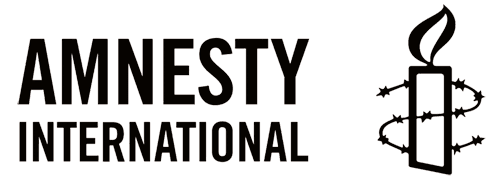Idris Hasan, an ethnic Uyghur living in Turkey, was arrested in July 2021 in Morocco on the basis of an Interpol red notice, which has since been cancelled. The Chinese government reportedly considers him a “terrorist”, which Chinese law defines in an overly broad and vague manner, because of the work he had previously done for Uyghur organizations. On 15 December 2021, the Moroccan Court of Cassation ruled in favour of Idris Hasan’s extradition. Idris Hasan remains in detention and at high risk of being extradited to China where he will face a real risk of arbitrary detention and torture. The Moroccan authorities must immediately cancel his extradition.
Idris Hasan is a 34-year-old computer designer who has been living in Turkey since 2012, with his wife and three children. He is a Chinese national from Korla, Xinjiang, and belongs to the Uyghur ethnic group. He was arrested on the night of 19 July 2021 at Casablanca airport where he was in transit to Western Europe after leaving Turkey, where he no longer felt safe.
In August 2021, several UN Special Procedures mandate holders recalled the absolute and non-derogable prohibition on returning persons to a place where they would be in danger of being subjected to torture or other ill-treatment, in accordance with Article 3 of the UN Convention against Torture, to which Morocco is a party. The principle of non-refoulement is also contained in the International Convention for the Protection of All Persons from Enforced Disappearance (ICPPED). As a party to the above legal instruments, Morocco has an obligation to abide by their provisions.
However, on 15 December 2021, the Moroccan Court of Cassation issued a favourable opinion on the extradition request in its ruling No. 1799. The day after, on 16 December 2021, four UN Special Rapporteurs urged the Moroccan government not to implement the Court of Cassation’s decision citing the risk of “serious human rights violations, including arbitrary detention, enforced disappearance, or torture and other cruel, inhuman or degrading treatment or punishment”.
On 20 December 2021, the UN Committee against Torture (CAT) granted interim measures, requesting that Morocco not extradite Idris Hasan to China. Thanks also to international pressure, he is still in Morocco, but the Moroccan authorities have still to reply to the CAT request of interim measures. Idris Hasan remains at high risk of extradition to China where he will likely face serious human rights violations including arbitrary detention, enforced disappearance, or torture.
Xinjiang is one of the most ethnically diverse regions in China. More than half of the region’s population of 22 million people belong to mostly Turkic and predominantly Muslim ethnic groups, including Uyghurs (around 11.3 million), Kazakhs (around 1.6 million) and other populations whose languages, cultures and ways of life vary distinctly from those of the Han who are the majority in “interior” China.
Since 2017, under the guise of a campaign against “terrorism” and “religious extremism”, the government of China has carried out massive and systematic abuses against Muslims living in Xinjiang. It is estimated that over a million people have been arbitrarily detained in internment camps throughout Xinjiang since 2017.
Amnesty International’s 2021 report, “Like We Were Enemies in a War”: China’s Mass Internment, Torture, and Persecution of Muslims in Xinjiang is the most comprehensive account to date of the crushing repression faced by Uyghurs, Kazakhs and other predominantly Muslim ethnic minorities in Xinjiang. Amnesty International’s investigation details human rights violations committed by the Chinese government in Xinjiang between 2017 and 2021, including those occurring outside the internment camps. The evidence Amnesty International has gathered provides a factual basis for the conclusion that the Chinese government has committed at least the crimes against humanity of imprisonment, torture and persecution against Uyghurs, Kazakhs and other predominantly Muslim ethnic minorities.

